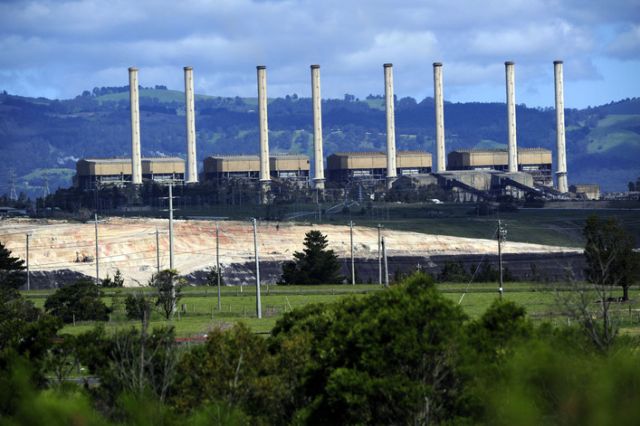
Gippsland unions and community organisations took part in the fourth in a series of “transition jobs seminars”. The seminar took place on October 13 under the auspices of the Gippsland Trades and Labour Council (GTLC) and the Royal Melbourne Institute of Technology (RMIT).
It dealt with the region’s current skills base in brown-coal mining, dairy and other industries, and the sort of training needed to skill workers for environmentally sustainable production.
GTLC believes the climate crisis offers a real jobs opportunity, one that must be grasped by local communities. That would force governments and politicians (“hunters chasing the caribou”, according to GTLC Secretary John Parker) to catch up.
As at the previous three seminars, the GTLC dealt soberly with the prospect of climate change, while insisting that the price should not be paid by working-class communities.
In his introduction, RMIT’s Peter Fairbrother pointed to research showing communities take around 20 years to recoup after mass redundancies. Donna Starkey from Latrobe City Council said 11% of the region’s jobs were direct power industry jobs, rising to 26% when ancillary jobs were accounted for.
Clearly, an unplanned transition out of brown-coal based energy production would lead to economic and financial disaster. That’s why GTLC has asked Fairbrother and fellow RMIT academic Darren Snell to provide the scientific data on which to base a correct transition policy.
Graham Middlemiss, a lifetime power industry worker, Construction Forestry Mining Energy Union mining and energy division executive member and Labor candidate for the seat of Morwell, said 10% of power workers and miners will lose their jobs within 10 years, as will 50% of maintenance workers in mines and power plants across Victoria.
Middlemiss said the companies (or government) would be forced to hire and train 25-30 year-olds for an industry that will not be able to provide them with long-term jobs — even while no alternative, sustainable, jobs are being developed.
Power industry maintenance workers present backed Middlemiss’s analysis, stressing that power companies had already started to exploit contract renewals as a pretext to cut back on staff.
Yet, according to Andrew McEwan, director of sustainability at South Gippsland Shire Council, the alternative jobs are begging to be created. For example, industrial, commercial and domestic retrofitting would need 500-1000 workers in the Latrobe Valley alone.
Middlemiss also mentioned the Eureka’s Future worker cooperative as a response to the climate crisis. The cooperative aims to manufactures solar hot water units in Gippsland and make them available to workers through the enterprise bargaining agreements negotiated by their unions.
Scott Ferraro, from the Gippsland Climate Change Network, said Eureka’s Future was the sort of practical outcome favoured by the network. Through its 60 affiliates, the network is supporting local government, small business and farming responses to the climate emergency.
Alex Arbuthnot, from dairy farmer umbrella organisation Agribusiness Gippsland, said that Gippsland will become a food hub, providing more direct farm jobs as well as farm-related service sector jobs.
The seminar was a useful step along the road of creating a new, sustainable economy for Gippsland.